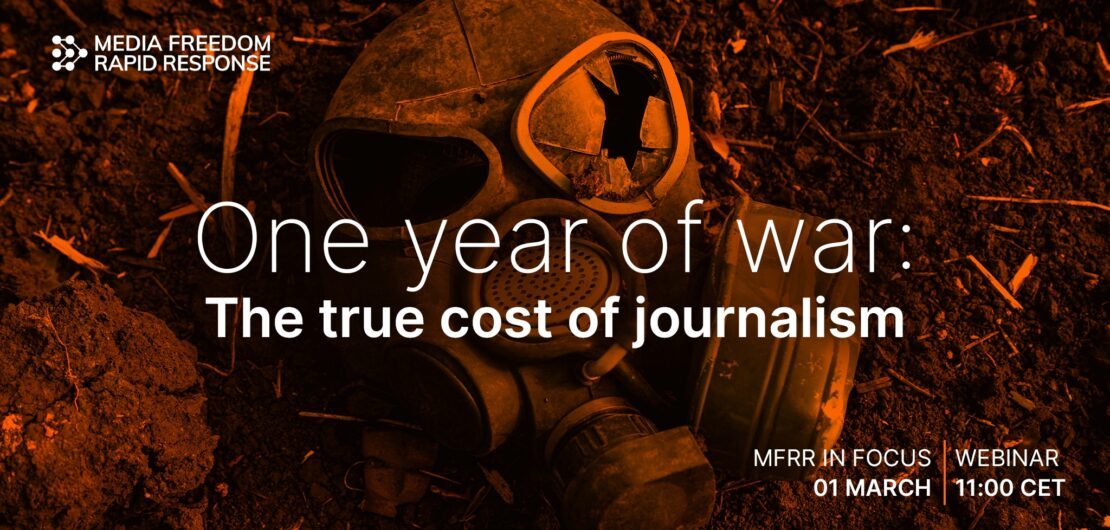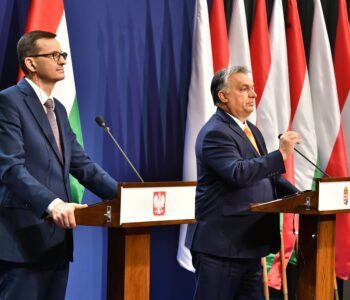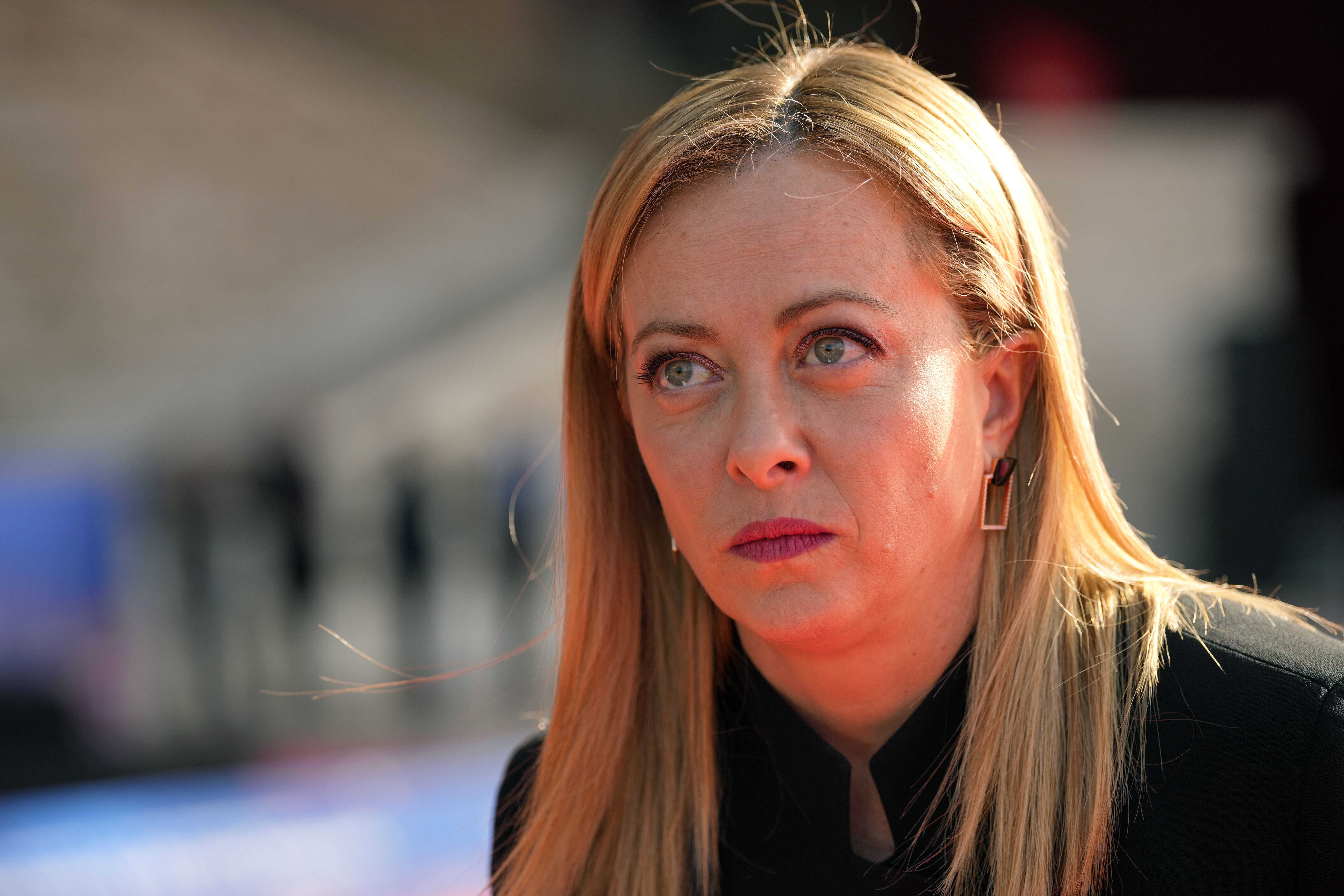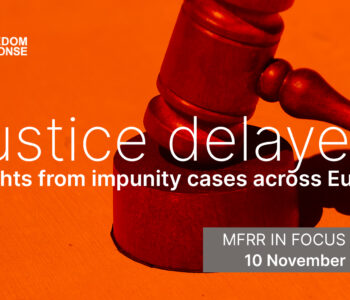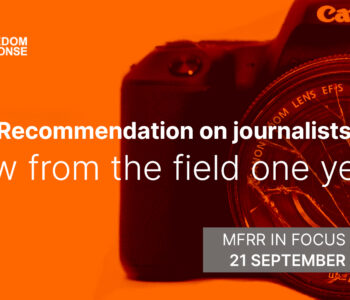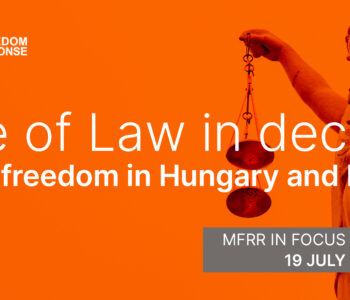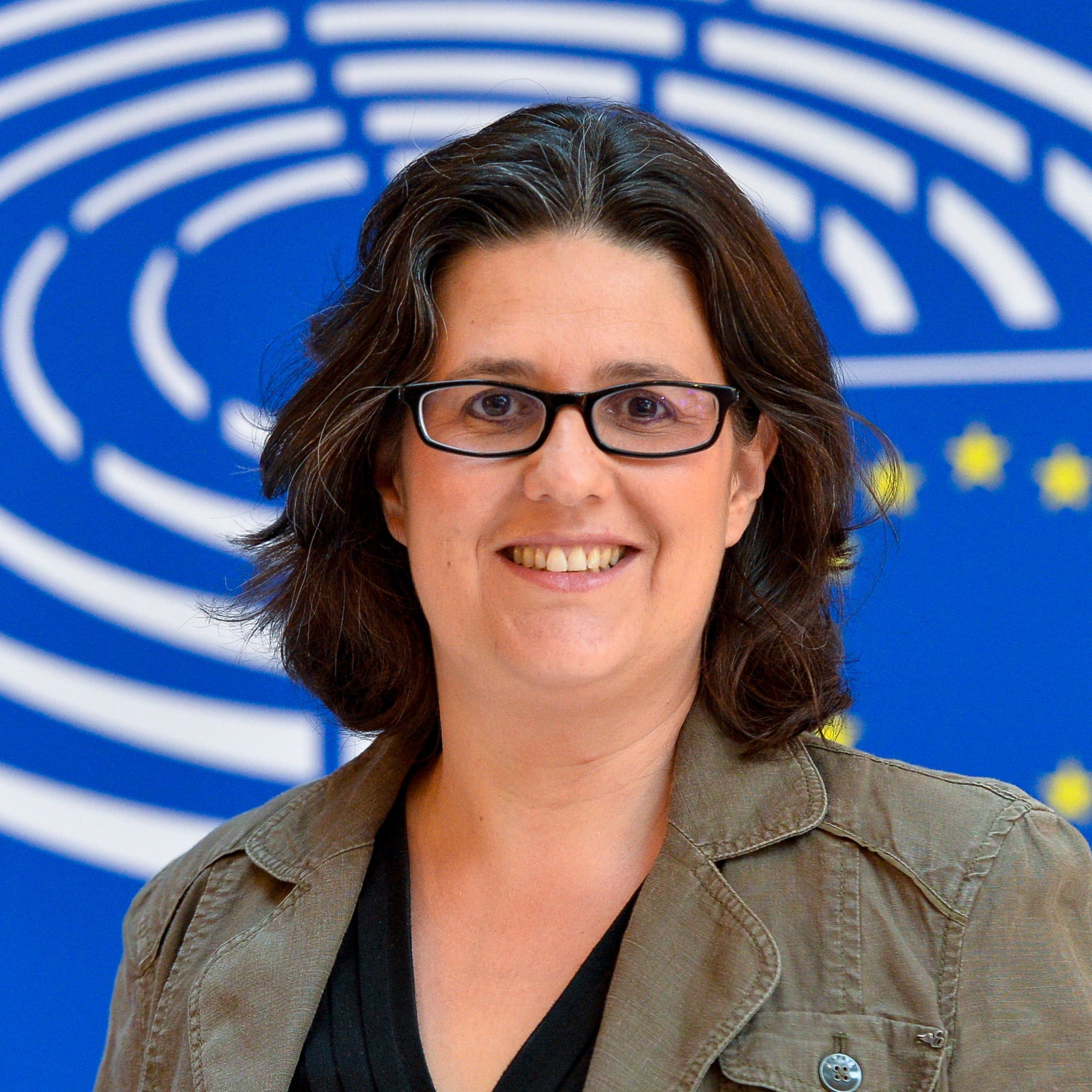In recent weeks there has been much talk in Italy about a recently opened legal case against the journalist and writer Roberto Saviano, who is accused of defamation in a lawsuit filed in 2020 by Giorgia Meloni, the new prime minister. Saviano had called Meloni and Lega leader Matteo Salvini ‘bastards’ during a La7 television programme for their policy on rescuing migrants at sea.
There have been multiple stances in defence of Saviano in newspapers and by associations for freedom of the press and freedom of expression. They have been critical of Meloni and of Salvini, who is a plaintiff in the trial, and say that Meloni’s lawsuit is intimidatory and aimed at discouraging criticism of Saviano and her.
This is not an isolated incident, however. At the end of November 2021, Prime Minister Meloni also filed a defamation case against the daily newspaper Domani. The court decided to indict journalist Emiliano Fittipaldi and the newspaper’s editor-in-chief, Stefano Feltri, over a year-old article about Meloni, who was not prime minister at the time.
The article dates back to October 2021 and reported on Domenico Arcuri, former extraordinary commissioner for the Covid emergency. Arcuri mentioned, talking to magistrates, the names of some MPs who, according to him, had contacted him to promote individuals or companies able to supply masks on “far less advantageous” terms. The MPs included Meloni, Domani reported.
In response, Meloni has demanded €25,000 in damages from the newspaper. The requested financial compensation is part of civil proceedings that can be claimed in addition to criminal proceedings, which is the legal framework for “aggravated defamation” lawsuits.
“Until a law on reckless litigation is passed, lawsuits and civil lawsuits remain the sword of Damocles over freedom of information in the country”, Feltri said in an article.
Domani’s journalists have also pointed out that while is possible for Meloni to sue the newspaper, the PM – herself under investigation for aggravated defamation for a tweet against one of her former candidates – is sheltering behind parliamentary protections from prosecution.
“Meloni as a ‘citizen, journalist and politician’, as she had her lawyer write, decided to take this newspaper to trial but her personal position has changed. As prime minister she is called upon to protect among the constitutional values also freedom of expression of all, also because as a ‘politician she can already protect her own,’” the journalists of Domani wrote.
The new Italian government had already come out against Domani. Last month, Defence Minister Guido Crosetto had announced his intention to sue the newspaper for defamation over an investigation by journalists Emiliano Fittipaldi and Giovanni Tizian into the current minister’s potential conflict of interest with companies in the sector he now oversees. For now, Minister Crosetto has not followed up on the announcement.
Italy’s SLAPP problem
The president of the Federazione Nazionale della Stampa Italiana (FNSI), Giuseppe Giulietti, recalled how ”the law to oppose gagging complaints and punish reckless actions has been at a standstill since 2002 and will remain so due to increasingly clear transversal intentions”.
The law Giulietti is referring to is the law against SLAPPs, as lawsuits are called in which there is a gross disproportion of power between the person or organization suing and the accused. The goal of accusers or plaintiffs in SLAPP cases is not necessarily to win the case, but to intimidate the defendant – even if only through the many burdens and effects of a trial – and discourage his or her work, taking away time, money and initiative. Plaintiffs also take advantage of the public bias against the presumption of innocence, placing the defendant in a position of weakness and risk.
Most of the time the accusation in SLAPP cases is defamation, and these cases are almost always directed at journalists, bloggers or activists who have written or said something in public that someone claims is defamatory against them. The consequences can be both criminal and civil.In Italy, both civil and criminal lawsuits are often referred to as “querele temerarie” (reckless lawsuits), with some confusion: “querela”, however, in legal language refers only to criminal cases. They are referred to as “reckless” because they are brought despite the uncertainty of the final outcome, but precisely for the purpose of responding or threatening the defendant.
A 2016 dossier edited by the association Ossigeno per l’informazione, based on data provided by the Ministry of Justice, estimated that around 70 per cent of defamation lawsuits are dropped by the public prosecutor and therefore do not go to trial.
There is no more recent data, but lawyer Andrea Di Pietro, who has been dealing with the issue for many years, said in an interview that in 2019 the ministry confirmed to Ossigeno that that percentage was still valid. According to him and several other experts in the field, it probably still is today.Until recently, Article 13 of Law 47 of 1948 on the press, which set forth a mandatory term of imprisonment from one to six years “in the event of conviction for libel in the press committed by attributing a specific fact”, was also taken into account for defamation in the press.
This article was declared illegitimate in June last year by the Constitutional Court. By contrast, the court deemed Article 595 of the Criminal Code, which deals with defamation, compatible with the Constitution, since that provision allows the judge to apply a prison sentence only in cases of exceptional gravity and in all other cases to limit it to a fine.
Article 595 of the Criminal Code concerns anyone who”’by communicating with several persons, offends the reputation of others”. It is punishable by imprisonment of up to two years or a fine of up to EUR 2,065, but both can be increased if the offence is against “a political, administrative or judicial body”.
In the case of defamation “in the press” – a definition that today includes both newspapers and other media, e.g. social networks, and therefore potentially concerns almost everyone – the penalty can be up to three years and the fine is at least EUR 516.
EU anti-SLAPP directive on the way
After years of calls for action, last April the European Commission presented two measures that are still awaiting approval. The first is a legislative proposal for a directive that would intervene precisely on the problems of civil lawsuits, which also exist in Italy: the most important measure is the introduction of a mechanism that would allow civil lawsuits that are manifestly unfounded to be dismissed quickly.
This mechanism, should the directive be approved, will, however, only be valid for cases of European relevance: i.e. cases relating to articles or public speeches involving, for example, more than one EU member country.
The directive also envisages protection for journalists working in the EU who receive convictions from courts in non-EU states, and penalties to discourage the frequent use of SLAPPs, including the possibility for an accused party who proves his or her innocence to claim damages from the plaintiff.
The other measure proposed by the European Commission is a recommendation to member states to implement measures to encourage this kind of practice in their national legislation. The recommendation, however, is not binding, and much will depend on whether and how it is implemented in each country.
The next hearing in Saviano’s trial has been set for December 12, 2022. Many journalists and members of the cultural world will be present at the hearing in support of the defendant. In the courtroom will also be the president of the FNSI, Giuseppe Giulietti, and the spokesperson of Articolo 21, an association that fights for press freedom, Elisa Marincola, as well as a delegation of CASE Italia observers who are following the case with a view to write a repor.
“It is necessary to say ‘enough to reckless lawsuits’ with a law that at this point can only be induced by the European Directive given that the Italian Parliament has failed to produce even a minimal amendment that could act as a deterrent against gag lawsuits,” Giulietti commented.
